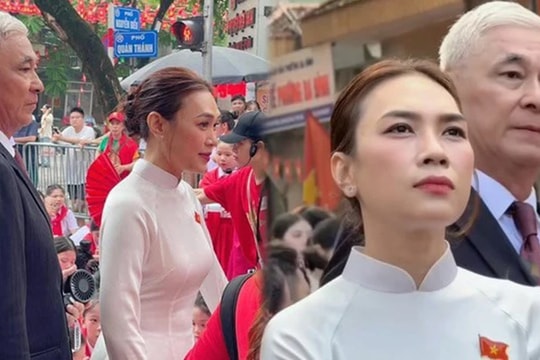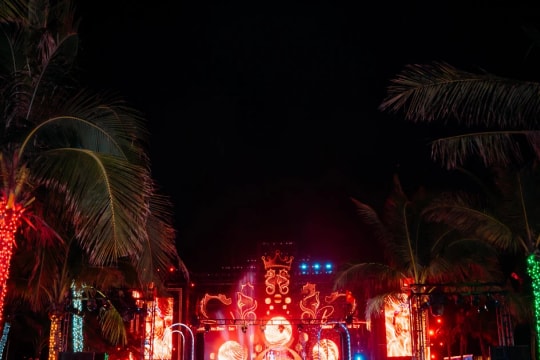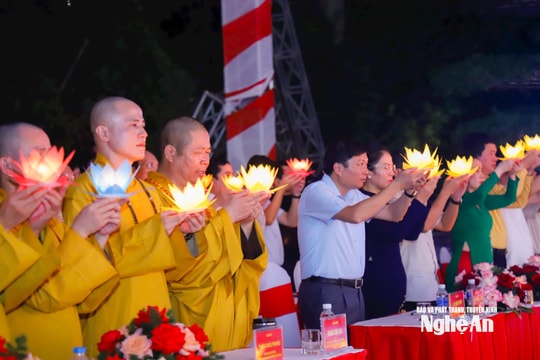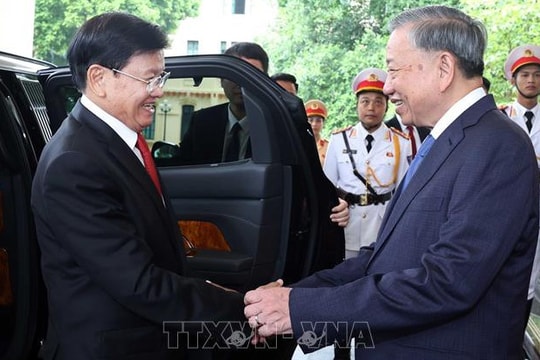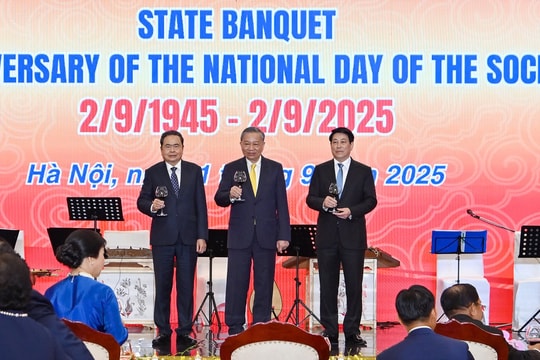Obama can create a push for Laos to 'escape' China
The upcoming visit of the US President could be an impetus for the new Lao government to push forward its policy of escaping economic and political influence from China.
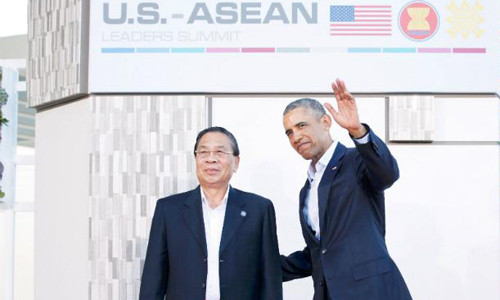 |
| President Obama welcomed Lao President Choummaly Sayasone at the Sunnylands conference earlier this year. Photo: Reuters |
US President Barack Obama will travel to the Laotian capital Vientiane on September 6-8 to attend the ASEAN summit, marking the final effort of his term to promote the policy of "rebalancing" to Asia, a strategy seen as a response to China's economic and military rise in the region, according to Reuters.
According to observers, since the new government was established in April, Laos has made major changes in its foreign policy, notably efforts to escape the influence of its giant neighbor China. And Mr. Obama's visit will play a role in promoting the process of "escape from China".
China’s influence is palpable in the capital of a nation of fewer than 7 million people. On the streets of Vientiane, SUVs driven by wealthy Chinese outnumber the tuk-tuks driven by locals, and grand hotels owned by Chinese tycoons rise from noisy construction sites.
At the Sanjiang Market, which was built with Chinese investment in 2007 in the west of Vientiane, shops display a wide variety of Chinese-made goods. The market is surrounded by a large Chinese population, like a miniature society.
Since Beijing initiated its outward investment policy in the 2000s, Chinese investment has poured into mining, construction, agriculture and hydropower projects in Laos, with total investment reaching more than 5 billion USD by the end of 2013, making China one of the largest investors in Laos.
According to figures from China's Ministry of Commerce and state media, Beijing invested about $1 billion a year in Laos in 2014 and 2015. Meanwhile, investments by American companies in the country remain modest.
Along with these investments and economic activities comes political influence, according to Martin Stuart-Fox, a professor at the University of Queensland, Australia. According to many observers, Beijing has used these investments to pressure Vientiane to support its stance on many regional issues.
Anthony Nelson, director of the US-ASEAN Business Council, said the US “only brings 7-8 companies to Laos”, but with China, “it’s a completely different ball game”. He said that for low-income countries like Laos, supporting China’s stance on international issues to enjoy investment incentives is completely understandable.
However, diplomats say Mr. Obama's upcoming visit could open a new door, prompting the new Lao government to adopt more practical policies and measures to escape China's economic and political influence.
“It is never too late for an American president to visit this country,” said a Western diplomat in Southeast Asia.
Policy changes
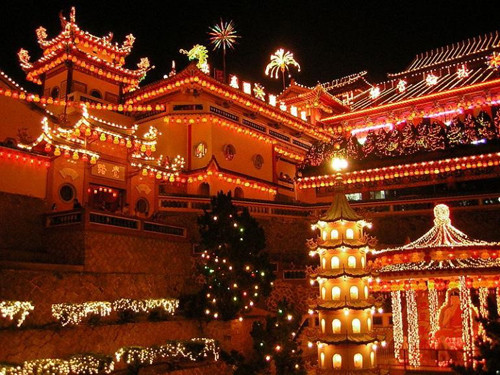 |
| A Chinese restaurant in Laos. Photo: FlightInternationalUK |
According to Reuters commentators, for China, Laos is a key gateway to Southeast Asia in its "New Silk Road" trade strategy. Laos is also considered the "battery of Asia" with a series of hydropower plants along the Mekong River to sell electricity to China and neighboring countries.
Western diplomats have noted a recent shift in the Lao government’s foreign policy. First, Deputy Prime Minister Somsavat Lengsavad, who heads the commission overseeing a $7 billion Chinese railway project in Laos, has been forced to retire. The ambitious railway project is also reportedly on hold because Laos is unhappy with the terms of the deal.
In two recent ASEAN conferences, Laos has also taken a tougher stance on China than neighboring Cambodia, a country long considered Beijing's "satellite" in ASEAN.
Analysts say Laos's more independent stance on issues related to China, especially territorial disputes in the East Sea, will have a very important impact on ASEAN meetings, especially when Laos is holding the ASEAN chair this year.
"The US's strategic interest in Laos is to see the country demonstrate a certain degree of strategic autonomy, because the US does not want to see a relationship similar to China and Cambodia," said Phuong Nguyen, an expert at the Center for Strategic and International Studies in Washington.
A defense official in Washington declined to comment on broader strategic issues, but described Laos as an “important partner” for the United States.
In terms of culture, unofficial figures show that there are currently about 300,000 Chinese people living and working in Laos, forming separate Chinese areas, separate from the rest of the local community.
"We are quite angry with the Chinese. They created their own ecosystem in our country," said a Lao businessman.
According to VNE
| RELATED NEWS |
|---|

.jpg)

